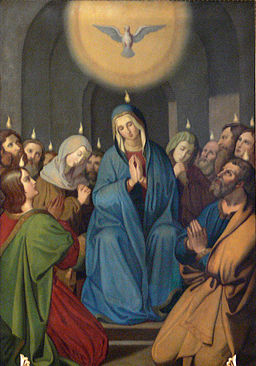The family.
Why do we refer to it as, "the family"? To many, "the family" conjures up a picture of a mom, a dad, and kids. This, it is claimed, is the pattern for the most basic of human social relations. It rests upon an oath of sexual fidelity and the responsibility that comes with the offspring of this sexual relationship. It most often begins with a sexual attraction, proceeded by a courtship to determine personal compatibility beyond the sexual to the intellectual and spiritual and non sexual physical aspects of personhood. The relationship then becomes an embrace of the entire person: the hopes, dreams, aspirations, talents, as well as the faults, weaknesses and challenges of the other. The ideal family is a community that nurtures and helps each member achieve their fullest potential in every area of their personhood, and in every area of society and the world. But it also must be outwardly focused, willing to bring strangers and those who look and act very different from its biological members into the midst of familial embrace, or it will breed self centered, fearful and socially awkward youth.
The family is, to many Christians, the central social entity. It is conceived as a unit of both the church and the national community. But I'd like to push back a little on this notion. Does God define family within the framework of this biological relation? Is this the central focus of Christian social identity? Is it possible to enlarge our definition and shift our emphasis without neglecting the lesser, biological relationship?

Abraham was given the promise that he would be the father of many nations. Yet the apostle Paul revealed that the promise was fulfilled by the faithfulness of Jesus, and is extended to all peoples through adoption into God's family through faith in Jesus. In order to give the most glory to God, the promise was fulfilled outside of human fertility, man's virility or decision, male power or ego, so that no one could boast. This was also the fulfillment of the protoevangelion, that the Seed of the Woman would crush the serpent's head. It was foreshadowed in the miraculous births of barren women: Sarah, Rebekah, Rachel, Hannah, Samson's mother, and Elizabeth, with the Virgin Mary being the archetype. The antitype was reached when the creative Spirit was poured out onto all flesh, making "...children born not of natural descent, nor of human decision or a husband's will, but born of God." As it is written in the prophets, "Sing, O barren woman....because more are the children of the desolate woman than of her who has a husband." And "let not any eunuch complain, 'I am only a dry tree.' For this is what the Lord says: 'To the eunuchs who keep my Sabbaths, who choose what pleases me and hold fast to my covenant- to them I will give within my temple and its walls a memorial and a name better than sons and daughters...". And, "I will say to those called 'Not my people,' 'You are my people; and they will say, 'You are my God.'"
And this prophetic theme John the Baptist continues in the Gospels, "I tell you that out of these stones God can raise up children for Abraham." And Jesus,"Here are my mother and my brothers! Whoever does God's will is my brother and sister and mother." And, "Do not call anyone on earth 'father', for you have one Father and he is in heaven." More radically, "If anyone comes to me and does not hate his father and mother, his wife and children, his brothers and sisters- yes, even his own life- he cannot be my disciple."
This revolution is continued in the apostles' exhortations, "From now on those who have wives should live as if they had none; those who mourn, as if they did not; those who are happy, as if they were not; those who buy something, as if it were not theirs to keep; those who use the things of the world, as if not engrossed in them. For this world in this present form is passing away."
I believe this strong language is to drive home the radical restructuring of the whole cosmos with the risen Christ at it's center, holding all things together by the word of his mouth, manifested in the witness of his people. When we are baptized, we cross over to this new way of being human, not defined with the way we look when we are first born, not defined by the usual way the world defines us, sexes us, categorizes us. This second birth supplants the old identity, redefining all existence in a way that relates to and is defined by Jesus. "In bringing many sons to glory, it was fitting that God, for whom and through whom everything exists, should make the author of their salvation perfect through suffering. Both the one who makes men holy and those who are made holy are of the same family. So Jesus is not ashamed to call them brothers."
With this new, eternal identity, then, we must approach our biological, transient relationships as of secondary importance, but bringing the energy of the risen Christ to bear upon them. They are not meaningless, but are infused with new meaning, as we take every opportunity to model the love of Jesus to one another. But at the fringes is where new creation takes place, prodding us to reassess where our true identity lies, pushing us to embrace the 'other', enabling us to be surprised when new things take place that we could never have thought possible. It is a place where we work out our salvation with fear and trembling, knowing that we will, each one of us for our own selves, give an account for everything said and done. Let our politics as God's family be worthy of this gospel.

No comments:
Post a Comment